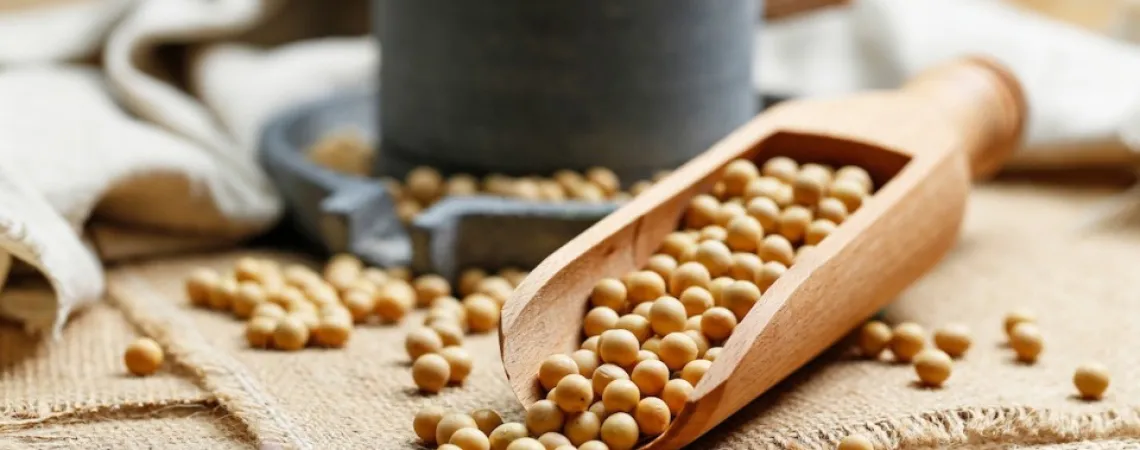
The impact of our diet on our hormonal health is a hotly debated topic. But what does science say? Does soy really have an influence on our hormonal status and our overall health? So here’s a little update on the subject, in light of recent scientific discoveries.
What Is Soy?
Soybeans are part of the legume family, along with chickpeas, beans and lentils. Soybeans can be found in different forms, such as tofu, tempeh, miso, edamame, soy beverage and other imitations of dairy products, such as soy yogurt or pudding. There are many possible recipes!
The Case of Isoflavones
Soy and its derivatives contain isoflavones, plant compounds that resemble estrogens: they are therefore called phytoestrogens. But don't be fooled by their name, since these compounds don't behave at all like the hormones (estrogens) in our bodies! Isoflavones play a key role in the prevention of cardiovascular disease (1), are associated with a reduced risk of developing breast cancer (2) and may even help reduce hot flashes associated with menopause (3).
Does Soy Affect Men's Testosterone?
Although this is a common statement, it is a myth! To date, scientific studies show that soy does not affect men’s testosterone levels when up to 150 mg of isoflavone per day is consumed (4). As an example, this represents the equivalent of 5 cups of edamame or 1.5 liters of soy beverage! A feminizing effect on men could however be observed at a consumption of 360 mg of isoflavones, although this amount is certainly excessive on a daily and long-term basis (4).
Soy and Thyroid Function
Soy consumption does not affect thyroid function in healthy individuals. Although studies are still thin on the subject, it is recommended to wait a minimum of 4 hours after taking synthetic thyroid hormones before consuming a meal that contains soy, for those concerned (5).
What About Breast Cancer?
It is still a myth that eating soy increases the risk of developing breast cancer. In fact, the opposite is true! Science shows that consuming soy products helps reduce the risk of developing breast cancer and even helps it go into remission (2).
Nutritionism
Nutritionism is a concept that says we can determine the value of a food and its effects simply by the nutrients it contains. And soy is a perfect example! When we take a bite of tofu or a sip of soy beverage, we’re not just eating isoflavones. We’re eating protein, fat, fiber and, most importantly, fun and flavor! When trying to evaluate a food, we must think of the whole and not just the molecules it contains.
References:
- Ma, L., Liu, G., Ding, M., Zong, G., Hu, F. B., Willett, W. C., ... & Sun, Q. (2020). Isoflavone intake and the risk of coronary heart disease in US men and women: results from 3 prospective cohort studies. Circulation, 141(14), 1127-1137.
- Baglia, M. L., Zheng, W., Li, H., Yang, G., Gao, J., Gao, Y. T., & Shu, X. O. (2016). The association of soy food consumption with the risk of subtype of breast cancers defined by hormone receptor and HER2 status. International journal of cancer, 139(4), 742-748.
- Ahsan, M., & Mallick, A. K. (2017). The effect of soy isoflavones on the menopause rating scale scoring in perimenopausal and postmenopausal women: A pilot study. Journal of clinical and diagnostic research: JCDR, 11(9), FC13.
- Messina, M. (2016). Soy and health update: evaluation of the clinical and epidemiologic literature. Nutrients, 8(12), 754.
- Extenso. Le soya et l’hypothyroïdie. Online (last modification : 28-11-2012)





